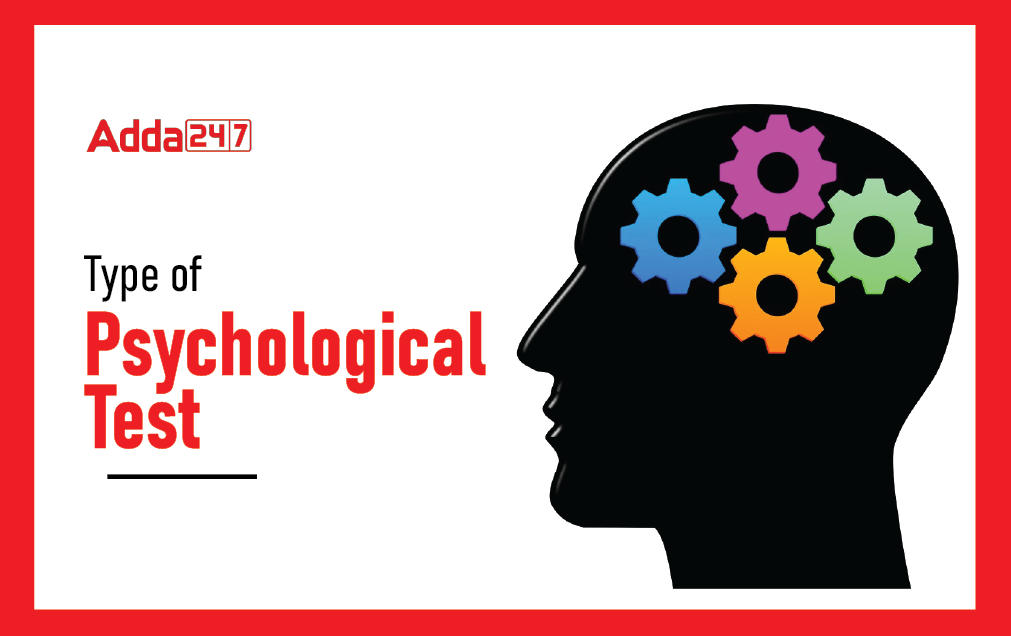Table of Contents
Psychological tests are written, visual, or verbal evaluations administered to assess the cognitive and emotional functioning of children and adults. Psychological Test is an objective and standardised measure of an individual’s mental and behavioural characteristics. Here we are going to learn Psychological Test , its types , Principles in details.
PSYCHOLOGICAL TESTS
Psychological test refers to the administration of psychological tests. A psychological test is “an objective and standardized measure of a sample of behavior”. The term sample of behavior refers to an individual’s performance on tasks that have usually been prescribed beforehand. The samples of behavior that make up a paper-and-pencil test, the most common type of test, are a series of items. Performances on these items produce a test score.
A score on a well-constructed test is believed to reflect a psychological construct such as achievement in a school subject, cognitive ability, aptitude, emotional functioning, personality and etc. Differences in test scores are thought to reflect individual differences in the construct the test is supposed to measure. The technical term for the science behind psychological testing is psychometrics.
Principles of Psychological Test
Psychological tests are given below : –
- Standardization : – All procedures and steps must be conducted with consistency and under the same environment to achieve the same testing performance from those being tested.
- Objectivity : – Scoring such that subjective judgments and biases are minimized, with results for each test taker obtained in the same way.
- Test Norms : – The average test score within a large group of people where the performance of one individual can be compared to the results of others by establishing a point of comparison or frame of reference.
- Reliability : – Obtaining the same result after multiple testing.
- Validity : – The type of test being administered must measure what it is intended to measure.
Types of Psychological Tests : –
There are several broad categories of psychological tests, there are given below:
IQ / Achievement Tests –
IQ tests purport to be measures of intelligence, while achievement tests are measures of the use and level of development of use of the ability. IQ (or cognitive) tests and Achievement tests are common norm-referenced tests.
In these types of tests, a series of tasks is presented to the person being evaluated, and the person’s responses are graded according to carefully prescribed guidelines. After the test is completed, the results can be compiled and compared to the responses of a norm group, usually composed of people at the same age or grade level as the person being evaluated.
- IQ tests which contain a series of tasks typically divide the tasks into Verbal (relying on the use of language) and performance, or non-verbal (relying on eye-hand types of tasks, or use of symbols or objects).
- Examples of verbal IQ test tasks are vocabulary and information (answering general knowledge questions).
- Non-verbal examples are timed completion of puzzles (object assembly) and identifying images which fit a pattern (matrix reasoning).
Attitude Tests –
Attitude test assess an individual’s feelings about an event, person, or object. Attitude scales are used in marketing to determine individual (and group) preferences for brands, or items. Typically attitude tests use either a Thurstone scale, or Likert scale to measure specific items.
Neuropsychological Tests –
These tests consist of specifically designed tasks used to measure a psychological function known to be linked to a particular brain structure or pathway. Neuropsychological tests can be used in a clinical context to assess impairment after an injury or illness known to affect neurocognitive functioning. When used in research, these tests can be used to contrast neuropsychological abilities across experimental groups.
Personality Tests –
Psychological measures of personality are often described as either objective tests or projective tests. The terms “objective test” and “projective test” have recently come under criticism in the Journal of Personality Assessment. The more descriptive “rating scale or self-report measures” and “free response measures” are suggested, rather than the terms “objective tests” and “projective tests,” respectively.
Objective Tests (Rating scale or self-report measure) –
Objective tests have a restricted response format, such as allowing for true or false answers or rating using an ordinal scale. Prominent examples of objective personality tests include the Minnesota Multiphasic Personality Inventory, Millon Clinical Multiaxial Inventory, Child Behavior Checklist, Symptom Checklist and the Beack Depression Inventory.
Projective Tests (Free response measures) –
Projective testing became a growth industry in the first half of the 1900s, with doubts about the theoretical assumptions behind projective testing arising in the second half of the 1900s. Some projective tests are used less often today because they are more time consuming to administer and because the reliability and validity are controversial.
Direct Observation Tests –
Although most psychological tests are “rating scale” or “free response” measures, psychological assessment may also involve the observation of people as they complete activities. This type of assessment is usually conducted with families in a laboratory, home or with children in a classroom. The purpose may be clinical, such as to establish a pre-intervention baseline of a child’s hyperactive or aggressive classroom behaviors or to observe the nature of a parent-child interaction in order to understand a relational disorder. Direct observation procedures are also used in research, for example to study the relationship between intrapsychic variables and specific target behaviors, or to explore sequences of behavioral interaction.
Interest Tests –
Psychological tests to assess a person‘s interests and preferences. These tests are used primarily for career counseling. Interest tests include items about daily activities from among which applicants select their preferences. The rationale is that if a person exhibits the same pattern of interests and preferences as people who are successful in a given occupation, then the chances are high that the person taking the test will find satisfaction in that occupation. A widely used interest test is the strong interest inventory, which is used in career assessment, career counseling, and educational guidance.
Aptitude Tests –
Psychological tests measure specific abilities, such as mechanical or clerical skills. Sometimes these tests must be specially designed for a particular job, but there are also tests available that measure general clerical and mechanical aptitudes. An example of an aptitude test is the Minnesota Clerical Test, which measures the perceptual speed and accuracy required to perform various clerical duties.
Download Psychological tests PDF
The direct link to download Psychological tests PDF has been mentioned below. Candidate an download the Psychological tests PDF in Hindi and English Medium. The clickable link for Psychological tests has been mentioned below.
| Download Psychological tests PDF | |
| In English | Download Psychological Test PDF |
| In Hindi | Download Psychological Test PDF |




 HPSC Assistant Professor Admit Card 2025...
HPSC Assistant Professor Admit Card 2025...
 RPSC 2nd Grade Teacher Vacancy 2025 Noti...
RPSC 2nd Grade Teacher Vacancy 2025 Noti...
 UPESSC Assistant Professor Exam Date 202...
UPESSC Assistant Professor Exam Date 202...




